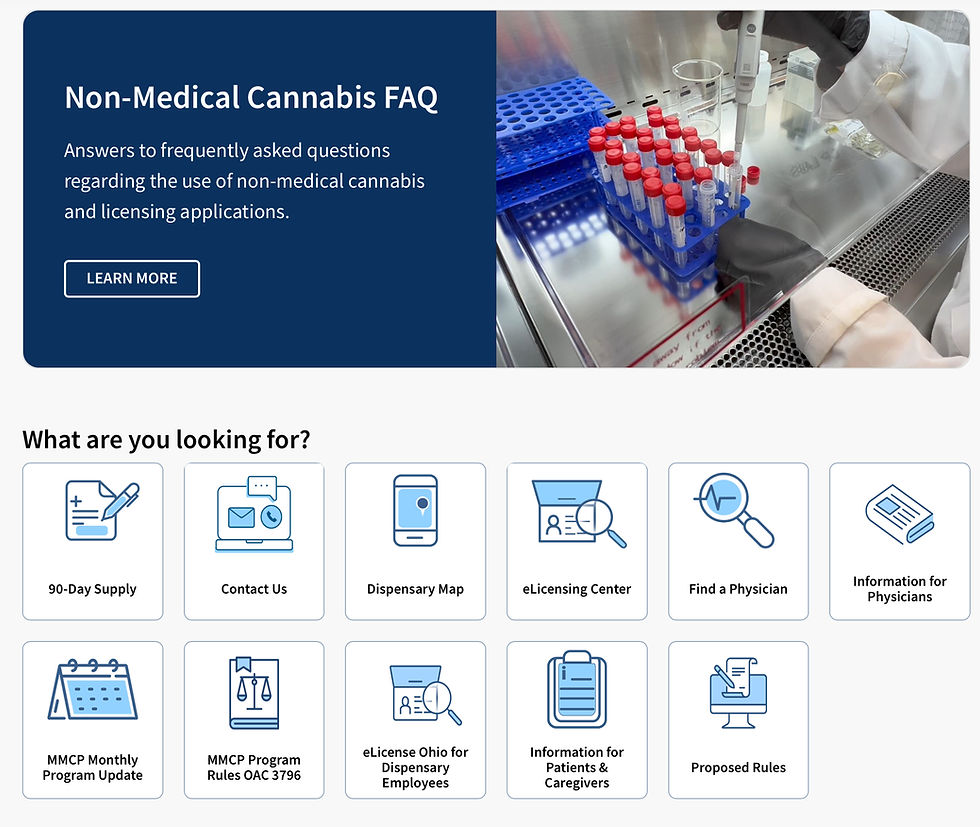FDA Opens a New Dawn for Medical Marijuana Research
- OMNI Medical

- Mar 25, 2024
- 3 min read
FDA's Groundbreaking Shift: A New Dawn for Medical Marijuana Research
In an unprecedented move that signals a potential sea change for cannabis in America, the Food and Drug Administration (FDA) has proposed a monumental shift in how medical marijuana is perceived and regulated.
Suggesting the reclassification of marijuana from a Schedule 1 to a Schedule 3 substance.
A recognition of cannabis's therapeutic potentials.
A catalyst that could unlock a treasure trove of research opportunities.
Here's what this could mean for medical cannabis research and why it matters!

Understanding the Reclassification
The current classification of marijuana as a Schedule 1 drug places it among substances deemed to have "no accepted medical use" and a "high potential for abuse," sharing the category with drugs like heroin and LSD. This classification has severely hampered research efforts due to strict regulations, limiting our understanding of cannabis's full medical potential.
The FDA's recommendation to reclassify marijuana as a Schedule 3 substance acknowledges its "lower potential for abuse than other substances in Schedules I and II" and its "currently accepted medical use in treatment in the US." This monumental step is supported by extensive research and a burgeoning acceptance within both the medical community and the general public.
The Impact on Research and Healthcare
The reclassification could revolutionize medical marijuana research by easing restrictions that have, until now, stifled scientific inquiry. With marijuana potentially moving to Schedule 3, researchers could delve deeper into cannabis's therapeutic uses without the red tape currently associated with Schedule 1 substances.
Marijuana has shown promise in treating conditions such as anorexia, pain, and nausea induced by chemotherapy. By facilitating more research, we can uncover further therapeutic uses, optimize dosages, and develop standardized treatment protocols, thereby integrating cannabis more seamlessly into mainstream medicine.
A Cautious Yet Optimistic Approach
While this recommendation marks a significant step forward, the FDA maintains a cautious stance. The acknowledgment of marijuana's medicinal purposes does not equate to an endorsement for all claimed benefits. It signifies a move towards a more nuanced, evidence-based understanding of cannabis's role in healthcare, emphasizing the need for further research to establish safety and efficacy for specific health conditions.
What's Next?
The final say on this reclassification rests with the Drug Enforcement Administration (DEA), which will undergo a rulemaking process, including a public comment period, before any changes are finalized. This process allows for a broad range of stakeholders,
from medical professionals to patients, to voice their perspectives and contribute to a more informed decision-making process.
Join the Cannabis Research Movement!
As we stand on the brink of potentially transformative change, there's never been a more critical time to engage with and support medical cannabis research. OMNI Medical's Cannabis Research Group is at the forefront of exploring cannabis's medical applications, and we invite you to join our community of researchers, healthcare professionals, and advocates.
Together, we can shape the future of medical cannabis, ensuring that its benefits are fully realized and accessible to those in need.
Stay Informed and Get Involved!
For those passionate about advancing medical cannabis research and usage, now is the time to make your voice heard. Engage with us, share your stories, and support research that could unlock the full therapeutic potential of cannabis.
Join OMNI Medical’s Cannabis Research Group today and be a part of this groundbreaking journey.





Comments